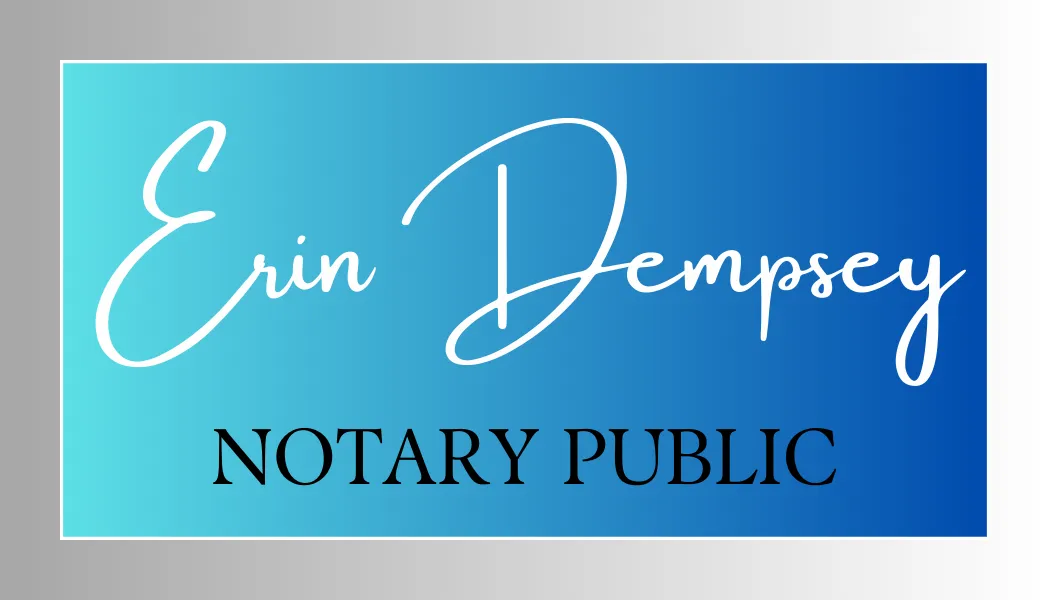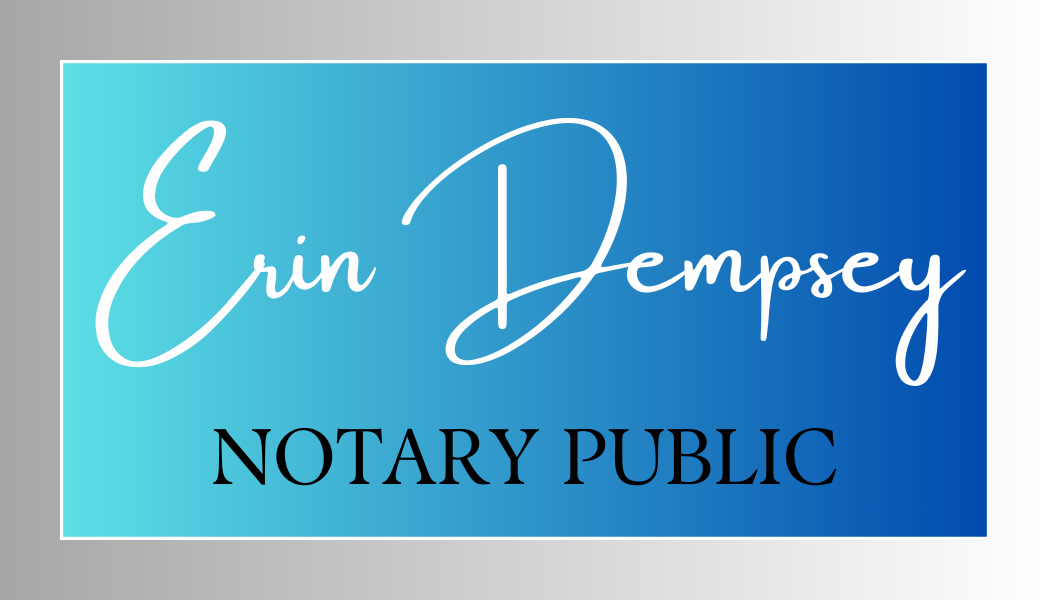(562) 307-1979
Book Your Next Signing Today
Have questions? Call or text us directly at (562) 307-1979
TESTIMONIALS
What others are saying
STILL NOT SURE?
Frequently Asked Questions
I understand you might have questions, so I've provided a list of answers below to help.
Question 1: What is a notary public?
A notary public is a state-commissioned official who witnesses the signing of important documents, verifies the identities of the signers, and ensures the process is conducted without fraud or coercion.
Question 2: What types of documents can a notary notarize?
Notaries can notarize a wide variety of documents, including:
Real estate documents (e.g., deeds, mortgages, loan agreements)
Affidavits and sworn statements
Powers of attorney
Trusts and wills
School or medical forms requiring notarization.
Question 3: What do I need to bring to a notary appointment?
You’ll need:
A valid, government-issued photo ID (e.g., driver’s license, passport)
All documents requiring notarization (fully completed, but unsigned until in the presence of the notary)
Any witnesses, if required for the document
Question 4: Can you notarize documents online or remotely?
Depending on your state laws, we may offer remote online notarization (RON). This allows you to complete the process virtually via secure video conferencing. The State of California does not currently allow CA notaries to preform RON.
Question 5: Do you offer mobile notary services?
Yes! My mobile notary services bring the notary to your location for maximum convenience. Contact Me to schedule a time and place.
Question 6: How much do notary services cost?
My fees are based on state regulations and the type of notarization required. Mobile services may include an additional travel fee. Contact me directly for a detailed quote.
Question 7: Do all parties need to be present at the time of notarization?
Yes, all signers must be present with valid identification during the notarization process.
Question 8: What is the difference between an acknowledgment and a jurat?
Acknowledgment: Confirms the signer’s identity and willingness to sign the document.
Jurat: Requires the signer to swear or affirm the truthfulness of the document’s contents in front of the notary.
Question 9: Can you notarize a copy of a document?
Yes, we can perform a "certified copy" notarization, depending on your state’s laws. Please bring the original document and the copy.
Question 10: Can you notarize documents for someone who is not physically present?
No, the signer must appear in person (or virtually, if allowed) before the notary for the notarization process.
Question 11: How do I schedule a notary appointment?
It’s easy to schedule an appointment! You can:
Call or text me at (562) 307-1979
Email me at [email protected]
Reach out through my notary Instagram Page https://www.instagram.com/e_dempseynotary/

